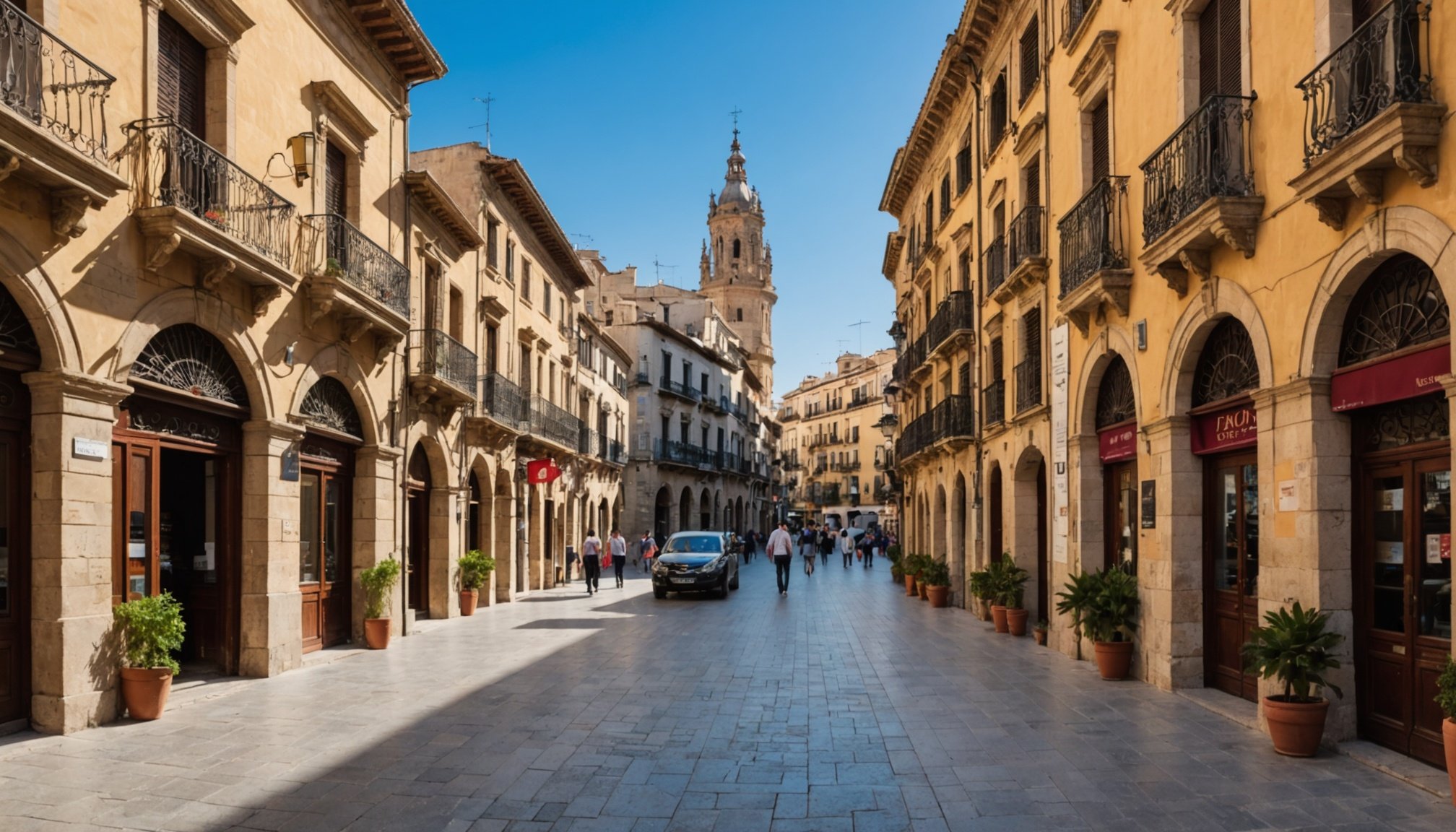Buying property in Spain offers unique opportunities for investment, relocation, or holiday homes. Understanding regional differences, legal steps, taxes, and costs helps avoid common pitfalls. This guide highlights key areas like Costa del Sol and Valencia, with practical tips tailored for foreign buyers to make confident, well-informed decisions in a competitive market.
Essential Steps for Buying Property in Spain as a Foreigner
Discover the best deals for buying in Spain begins with the understanding of the legal requirements. Prospective buyers must obtain an NIE (Número de Identificación del Extranjero) and engage legal counsel to navigate Spain’s property laws effectively. The typical property buying process involves several steps: from property search to final registration. Initially, buyers search through trusted portals or agents, then review the Nota Simple legal document that verifies ownership.
Also to read : Essential Strategies for UK Expats to Safeguard Their Property Investments from Afar
A common mistake is overlooking potential pitfalls such as scams, hidden debts, or inaccurate property descriptions. It is vital to verify seller legitimacy and conduct thorough inspections, including property surveys. Using registered agents to avoid scams is advisable. Negotiation strategies should include clear pricing terms and understanding local market conditions.
For non-residents, mortgage options are available but generally involve higher deposits—around 30–40%. Additional costs include VAT, transfer taxes, and notary fees, adding approximately 10-15% to the purchase price.
Topic to read : Unlocking Crowdfunding: A Guide for UK Property Owners to Fund Their Projects
In summary, careful legal and financial preparation, along with diligent property due diligence, ensures a smooth purchase experience.
Legal and Financial Considerations When Purchasing Property in Spain
Legal Procedures and Documentation
The legal process for property purchase Spain begins with verifying property title deeds and a thorough review at the property registry. Buyers must obtain an NIE (foreign identification number) before proceeding. The notary plays a key role, preparing official contracts and witnessing the signing, and is vital for legal security. A qualified lawyer helps navigate paperwork for buying property Spain, carrying out due diligence, clarifying ownership, and checking for debts or legal claims. Essential legal documents include the Nota Simple, land registry extracts, proof of seller ownership, and property plans. Engaging a lawyer also helps avoid pitfalls and protects the buyer’s interests.
Costs and Taxes for Buyers
The costs of buying property in Spain are more than the purchase price. Taxes when buying property Spain include Transfer Tax (6–10% for resale homes), or VAT (10%) and Stamp Duty (1.5%) for new builds. Additional fees—such as the notary, registry, and legal fees—typically add another 2–4%. Paperwork for buying property Spain usually incurs legal and translation costs, plus community fees and annual property taxes. Budget planning is vital to manage these predictable and hidden costs so buyers avoid unexpected expenses.
Financing Options and Mortgage Availability
Financing property purchase Spain is possible for both residents and non-residents. Mortgages for non-residents usually require higher down payments (30–40%); locals may access up to 80% loan-to-value. Paperwork for buying property Spain includes proof of income and credit checks. Foreign buyers are encouraged to use brokers familiar with Spanish banks, improving approval chances and terms.
Regional Insights and Market Trends in Spanish Property Market
Popular Regions and Cities
The Spanish real estate market remains highly regional, driven by local demand and international interest. Top choices for property seekers include Costa del Sol, Valencia, Costa Blanca, Balearic Islands, and Catalonia. In the best locations to buy in Spain, prices vary sharply: coastal hotspots like Costa del Sol and the Balearic Islands are known for robust demand and higher property values. Meanwhile, inland towns present more affordable entry points. Buyers should consider factors such as proximity to amenities, transport links, and quality of life, as these directly shape both short- and long-term property values.
Market Trends and Investment Opportunities
Current property market trends Spain show that prices increased by roughly 4% in early 2024, especially in large cities and coastal destinations. Foreign investment, including British buyers, remains strong despite Brexit-related adjustments. Rental yields are particularly attractive in tourist heavy regions, supporting the case for property investment Spain. Market predictions continue to favor steady growth, but buyer competition may intensify due to limited housing stock, particularly in the best locations to buy in Spain.
Tips for International and First-Time Buyers
International buyers entering the Spanish real estate market should prioritize research on best locations to buy in Spain and engage qualified real estate agents. Understanding local paperwork, taxes, and the property market trends Spain—plus obtaining official translations—can streamline the process. Always verify agent credentials and legal documents to reduce risks and avoid hidden costs.
Practical Tips for a Smooth Property Purchase in Spain
Selecting trusted real estate agents is the core of any successful property buying process in Spain. Ensure any agent you work with is registered, ideally with the API (Agente de la Propiedad Inmobiliaria), to mitigate risk and access genuine tips for buying property Spain offers. Finding a realtor in Spain who is well-versed in both the language and local regulations can expedite paperwork for buying property Spain and clarify negotiation tips for buying property Spain.
Verification is non-negotiable. Always check an agent’s credentials and reputation, and don’t hesitate to request proof of registration. To avoid dealing with property scams, inspect legal documents (such as the Nota Simple) thoroughly, ensure the seller’s legal right to sell, and confirm the property is free from debt or liens.
Prioritize property inspections and surveys. Qualified professionals should conduct these, as hidden defects may impact property prices Spain-wide. Commissioning property surveys Spain brings extra peace of mind, especially when buying homes in Spain or investing in new build properties in Spain.
For negotiations, rely on local market trends and recent sales data. Effective strategies hinge on thorough research of the property buying process Spain follows. Mistakes like skipping surveys or neglecting to consult Spanish property law heighten risks for international buyers.
The Step-by-Step Property Buying Process in Spain
Precision answer: To buy villa in Spain or any property type, the property buying process Spain involves organizing financing, getting an NIE, searching for properties, conducting due diligence, signing contracts, making payments, and registering ownership. Foreigners face no major restrictions but must follow legal steps and cover taxes when buying property Spain.
Organize Finances and Secure Pre-Approval
Start by evaluating your finances and researching mortgage options Spain. Non-residents can typically borrow up to 60–70% loan-to-value, meaning you need a substantial deposit for buying homes in Spain. Mortgage brokers experienced with non-resident property purchase are helpful, as requirements and terms sometimes differ from domestic buyers.
Obtain Your NIE and Begin Your Search
An NIE (Número de Identificación de Extranjero) is vital for buying property in Spain and all tax or legal processes. Begin searching with Spanish real estate agents or through Spanish property portals. Options to buy villa in Spain span popular destinations such as Costa del Sol, Malaga, and Alicante.
Due Diligence and Contracts
Request the Nota Simple property report, and arrange property inspections Spain if needed. Legal process for property purchase Spain means ensuring all paperwork for buying property Spain is accurate, including title deeds and building surveys. Consult a specialist in Spanish property law for contract review and negotiations.
Payment, Taxes, and Transfer
Once terms are agreed, pay a standard deposit (often 1%) and sign the preliminary contract. The final deed is signed before a notary. Expect to budget for notary fees, property registration Spain, and additional taxes when buying property Spain, as these can total an extra 10–15% of the purchase.











